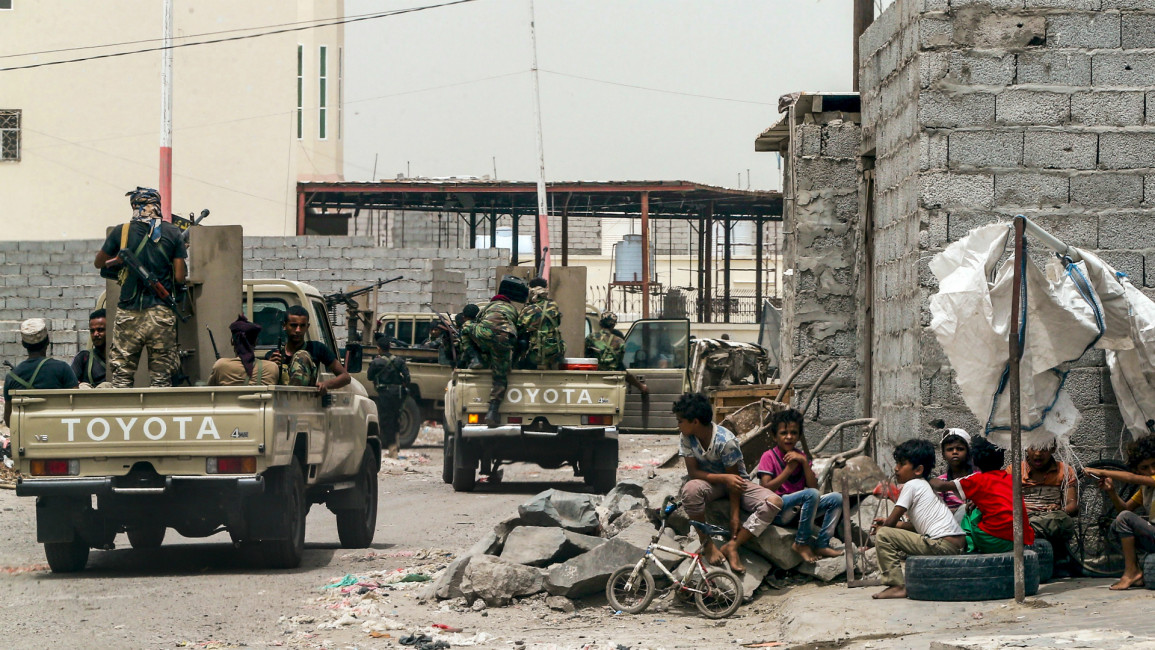No face-to-face meetings at Yemen peace talks: official
The United Nations has invited Yemen's government and the Iran-backed Houthi rebels to Geneva for talks which open Thursday.
Both parties have confirmed they are sending high-level delegations to the talks, but officials say expectations of a breakthrough are low.
UN envoy Martin Griffiths has said the talks are aimed at charting a path forward to revive UN-backed negotiations which broke down in 2016.
The Yemeni government says the talks will likely focus on a prisoner exchange deal and the fate of embattled Hodeida, the rebel-held port city that is now the frontline of the Yemen war.
Yemen's Foreign Minister Khaled al-Yamani told AFP the meetings "will not be face-to-face and depend on how well the UN envoy manages the two sides".
 |
Both parties have confirmed they are sending high-level delegations to the talks, but officials say expectations of a breakthrough are low |  |
"The consultations will be indirect, unless there is some progress that can be made directly," said Abdullah al-Olaimi, head of Yemen's presidential office and a member of the Geneva delegation.
Prisoner swap deal
Yemen's government has openly said it has low expectations for the talks, blaming the Houthis for refusing to make concessions.
"Our expectations are limited to the possibility of progress in the question of prisoners and detainees," Yamani said.
"I think this is the chance to succeed in securing the release of prisoners, and I believe the other party is also willing and ready."
The UN has likewise set a low bar for the talks - the first since 106 days of negotiations in Kuwait failed to yield an agreement between the government and rebels back in 2016.
"The aim of this first round of consultations is to better understand how committed both parties are to the framework for formal negotiations... and to come to some conclusions about how those negotiations may start," said UN spokesman Stephane Dujarric.
In July, the Yemeni government demanded the release of all prisoners held by the Houthis as a condition for the start of peace talks.
Speaking on condition of anonymity, a government source said the delegation would demand the release of 5,000 prisoners while the rebels were hoping for the liberation of 3,000 of their fighters.
 |
The delegation would demand the release of 5,000 prisoners while the rebels were hoping for the liberation of 3,000 of their fighters |  |
Rights group Amnesty International in July said it feared violations in a string of Yemeni prisons could amount to war crimes.
The prisons, according to Amnesty, are run by the UAE, the Yemeni government's most powerful partner on the ground.
The UAE has denied involvement in any prisons in Yemen.
Backed by Saudi Arabia and its allies, the government of Abedrabbo Mansour Hadi has battled the Houthis for more than three years in what is widely seen as a proxy war between Riyadh and Tehran.
The conflict has killed more than 10,000 people since 2015 and triggered what the UN calls the world's worst humanitarian crisis.
Government forces backed by the Saudi-led coalition in June launched a major offensive to capture Hodeida from the Houthi rebels, sparking fears of a fresh humanitarian crisis.
Hodeida is home to Yemen's most valuable port on the Red Sea. The port, controlled by the rebels, is under blockade by the Saudi-led coalition, which has allowed the delivery of humanitarian assistance in recent weeks.


![President Pezeshkian has denounced Israel's attacks on Lebanon [Getty]](/sites/default/files/styles/image_684x385/public/2173482924.jpeg?h=a5f2f23a&itok=q3evVtko)



 Follow the Middle East's top stories in English at The New Arab on Google News
Follow the Middle East's top stories in English at The New Arab on Google News


